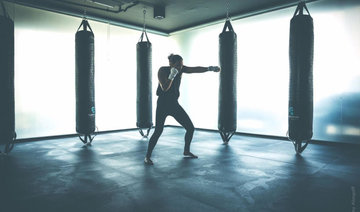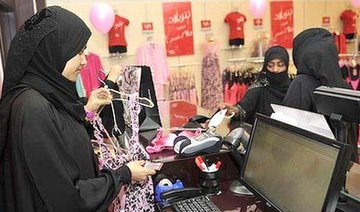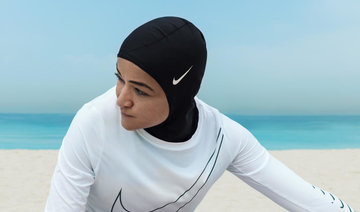JEDDAH: She is a rarity in the foreign diplomatic corps in Jeddah. Ever since she arrived in January 2015 for her first foreign posting as Italy’s consul general, Elisabetta Martini has carved a niche for herself and her country through her extraordinary work and outreach efforts. On the eve of International Women’s Day, she spoke to Arab News about the challenges she has faced as a female diplomat, and her observations about Saudi women.
She chose Saudi Arabia as her diplomatic posting “because it was an extremely challenging post, and that was the hook for me. When somebody throws a challenge at me I immediately accept it. When I was asked to apply for foreign posts, I chose Jeddah.”
Martini describes Saudi Arabia as “a very powerful country in terms of natural resources, in terms of being a regional power, a country that maintains the regional balance in the Middle East. Before coming here, I knew of Saudi Arabia as a giant that wasn’t fully awake. It has the potential to become the most powerful country in the region.”
She started her diplomat career in 2012. She was posted in Rome for two years, where she dealt mostly with European affairs and foreign policy. She graduated in political science and completed her master’s in international relations.
She interned for six months at the Italian Embassy in Washington, DC, while she was doing research for her final thesis at John Hopkins University. The subject of her thesis was the Silk Road. During her time in the US, she was associated with a well-known Italian think tank, the International Affairs Institute (IAI). “That’s when I realized the importance of think tanks,” she said.
From the US, Martini moved to Brussels as the assistant of the representative of the Italian Senate at the European Parliament. “That was an extremely useful experience for me,” she said.
Later, she worked as an export manager for a German design company. “I represented this German firm and I used to sell a lot of their products to mostly Arab clients,” she said. All this experience stood her in good stead. “I got to know the private sector, the powerful role of think tanks and then the public sector,” she said.
In the first week of her arrival in Jeddah, King Abdullah died. “So change started to happen very quickly. That was another challenge for me, because my first public appearance was to give condolences for the death of the late king in the (presence) of the governor of Makkah,” Martini said.
“They were all men. There was a discussion between me and my colleagues, and with other consul generals, about how I should be dressed, how I should look… and how I should behave when paying condolences (here). At the same time, it was my first public appearance.” She said she covered her head out of respect for local traditions. “That really went well.”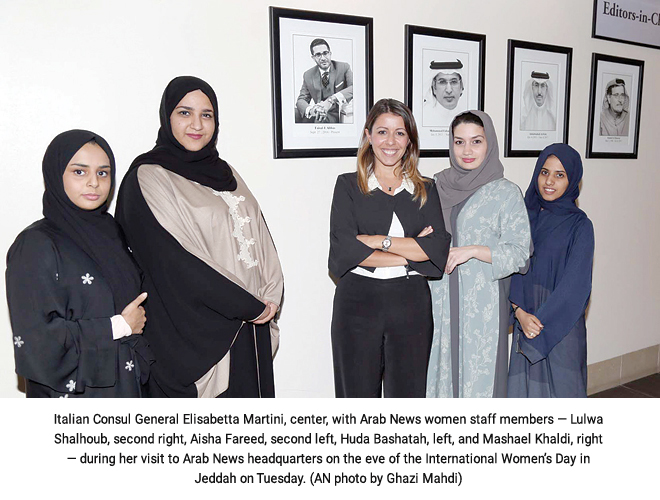
On how challenging it is for a female diplomat in a country where women are not the predominant force in public life, she said: “It’s difficult for women, not just a female diplomat, all over the world, not just in Saudi Arabia. In my country, when I deal with my own people as myself and not as a diplomat, I support women’s rights. Everyone should give this contribution to the development of his or her own country.
“However, one shouldn’t interfere in the policies of other countries. In Italy, there’s a top-down policy that tries to push women into key areas. Women around the world have to work from the bottom up, instead of top-down.” She said people in Italy are surprised to know that she is the consul general in Jeddah.
Regarding Saudi women, Martini said she has seen a lot of changes. “When I came here, I was a bit surprised because the American consul general was a lady before me. The British consul general was a lady some years ago. The German consul general was a lady, so I wasn’t the first lady in the diplomat service here. The difference was that I was young, so I had to prove myself.
“Women are more critical toward other women because we know how much we have to fight and struggle for something. But when you see someone has made it to the top, you ask how she achieved it. Maybe because she’s the daughter of an ambassador? They try to belittle your success.”
Martini said she has interacted with a lot of women here. “Saudi Arabia isn’t one Saudi Arabia. There are different layers of society. There’s a big difference between the various classes of society. Some women who come from opened-minded families don’t have to face any problem. There are women who participate in municipal elections and civic activities.
“But there are some women who face lot of issues. So there are different layers. There are some women in Saudi Arabia who are more qualified than me and can do whatever job they want. Their fathers, husbands and brothers admire them. It’s amazing. But others have to struggle a lot.”
As a diplomat, did she encounter conservatives in the Kingdom, and if so how did she deal with it? “In Saudi Arabia, people recognize authority. They have a very strong sense of authority. They might say ‘you’re a lady and young,’ but they know I represent Italy in Jeddah. They have a strong respect for the state. So as far as I’m the consul general, they respect me. Everyone meets with me in a very respectful way.
“So far, I’ve never met someone who refused to shake my hand. I found Saudis super welcoming. I’m always being welcomed to their houses for big and intimate gatherings. They try to make me feel at ease.”
About women journalists in Saudi Arabia, Martini said: “It’s very important to encourage female journalists because it’s very important to have their point of view. They’ll always have a different point of view. Only they can understand their issues well.”
She said in advanced countries, women do not want to celebrate International Women’s Day as they have already reached gender equality. “But for me this occasion reminds us of the importance of women in society. We need to push the role of professional women in the world. We’re the other 50 percent of society. My message to women is not to rely on the fact that they’re women. They must think of themselves first and foremost as human beings, and go ahead in life.”
Italy’s first woman consul general sees a multi-layered, dynamic Saudi society
Italy’s first woman consul general sees a multi-layered, dynamic Saudi society
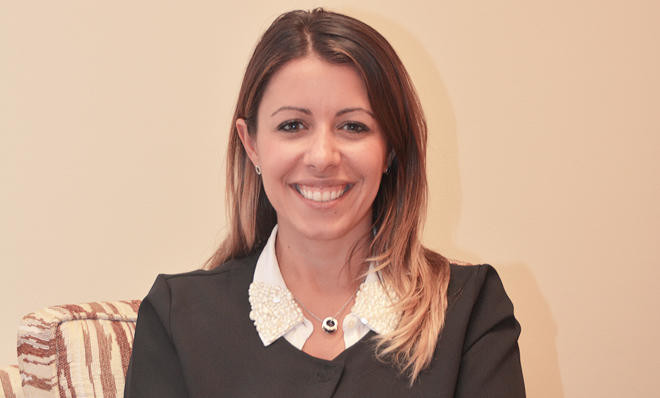
Saudi and French experts explore opportunities for cooperation in sustainable agriculture

Saudi Arabia’s National Research and Development Center for Sustainable Agriculture, also known as Estidamah, welcomed a delegation from the French National Federation of Seed Potato Growers for an official visit during which they discussed opportunities for enhanced cooperation and exchanges of expertise.
The visitors learned about the center’s activities, including its research and technical programs and prominent projects that support the development of sustainable agricultural solutions in the Kingdom.
The center said the visit reflected its commitment to building strategic partnerships with leading international organizations, and the sharing of experience that can contribute to the development of the agricultural sector and improved food security.
The French federation, which specializes in support and development of potato seed production, oversees a number of research and technical institutions.
AlUla Skies Festival 2025 returns next week

- The festival features a variety of additional activities, including illuminated hot air balloon shows, tethered-flight and free-flight balloon rides over AlUla’s iconic landmarks, and musical concerts blending culture, exploration and entertainment
RIYADH: AlUla Moments has announced the return of the “AlUla Skies Festival 2025” from April 18 to 27, featuring a variety of new experiences.
The festival highlights the area’s clear, light-pollution-free skies and AlUla’s deep, ancient connection to astronomy, as it is home to Gharameel and AlUla’s Beacon, the first designated Dark Sky locations in the Middle East, recognized by the International Dark-Sky Association, solidifying AlUla’s status as a global hub for astro-tourism.
The festival offers visitors a rare opportunity to stargaze in a pristine natural environment, showcasing IDA-certified locations such as Gharameel and AlUla’s Beacon.
These spots are among the first official Dark Sky Sites in the region, reinforcing AlUla’s role as a leading destination for stargazing tourism.
Visitors can head to the Gharameel Reserve to view the Milky Way in one of the clearest skies in the region. The experience also includes night walks, camping sessions and grilled dinners around campfires.
The festival features a variety of additional activities, including illuminated hot air balloon shows, tethered-flight and free-flight balloon rides over AlUla’s iconic landmarks, and musical concerts blending culture, exploration and entertainment.
For more information about the AlUla Skies Festival, visitors can check the official website: https://www.experiencealula.com/en.
SFDA CEO meets German food safety president

- The meeting took place as part of the bilateral engagements on the sidelines of the sixth meeting of the International Heads of Food Agencies Forum, held in Chile from April 9-11
RIYADH: The chief executive officer of the Saudi Food and Drug Authority, Dr. Hisham S. Aljadhey, on Thursday met in Santiago with President of the German Federal Institute for Risk Assessment Dr. Andreas Hensel.
The meeting took place as part of the bilateral engagements on the sidelines of the sixth meeting of the International Heads of Food Agencies Forum, held in Chile from April 9-11.
According to a press release from the SFDA, both sides underscored the crucial role of regulatory authorities in forging robust partnerships with the private sector.
This collaboration is vital for developing and improving product quality, driving progress, and enhancing operational efficiency within a unified system that prioritizes product safety.
Discussions also centered on the importance of establishing an integrated regulatory system underpinned by reliable reference data, accurate quality testing, and transparent regulatory frameworks.
This foundation will foster greater confidence in regulatory information, improve the capacity for proactive risk assessment and response, and ultimately enhance product reliability and food safety.
Officials from the SFDA delegation also conducted a series of bilateral meetings with several counterpart regulatory bodies, including the UK Food Standards Agency, the Chilean Food Safety and Quality Agency, the New Zealand Food Safety branch of the Ministry of Primary Industries, and the Portuguese Economic and Food Safety Authority.
These meetings were geared toward fostering cooperation frameworks and enhancing integrated work with international organizations to serve food quality and safety objectives.
Saudi Arabia was green corridor 8 million years ago: Saudi Heritage Commission

- Mesfer Alqahtani: The core findings of this study is that the Arabian Peninsula was not always a desert, it underwent repeated humid phases that supported rich biodiversity
- SHC, in collaboration with leading local and international institutions, led a scientific mission that looked into the oxygen and hydrogen isotopes preserved in cave formations
RIYADH: The Saudi Heritage Commission unveiled new findings this week that prove the Kingdom was a vital oasis eight million years ago.
Mesfer Alqahtani, archaeology consultant at the commission, said on Wednesday: “The core findings of this study is that the Arabian Peninsula was not always a desert, it underwent repeated humid phases that supported rich biodiversity and sustained both land and marine ecosystems, making it a natural bridge for the movement of species between Africa and Asia in the ancient world.”
The SHC, in collaboration with leading local and international institutions, led a scientific mission that looked into the oxygen and hydrogen isotopes preserved in cave formations. It used a combination of dating techniques such as uranium-thorium and uranium lead analysis studies to document the longest-known record of ancient climate in the Arabian Peninsula, dating back about eight million years.
The study analyzed 22 speleothem samples extracted from seven desert caves located northeast of Riyadh near Shawayyah in Rumah governorate. The caves are locally known as Duhool Al-Samman.
Experts at the SHC underlined that these findings provide clear evidence of recurrent humid and rainy periods in the region’s past.
The study also found fossils pointing to the presence of a fertile environment.
Dr. Ajab Alotaibi, director general of the commission’s antiquities sector, said that the study highlighted the Arabian Peninsula’s crucial role as a corridor for the dispersal of organisms between Africa, Asia and Europe.
The study is part of the commission’s flagship initiative, the Green Arabia Project, which aims to explore the region’s natural and environmental history.
Michael Petralia, professor and director, Australian Research Center for Human Evolution, said: “Our archaeological work on the lakes of Arabia has now indicated that humans and early humans were in Saudi Arabia 500,000 years ago; that tells us immediately that Arabia acted as a crossroads between continents, between Africa and Asia, so this is a landscape that is very important in terms of documenting heritage, paleontology, archaeology, through time.”
The SHC-led findings have been published in the scientific journal, “Nature,” under the title “Recurrent humid phases in Arabia over the past 8 million years.”
The research brought together 30 scientists from 28 organizations — local and international — including the Heritage Commission, the Saudi Geological Survey, King Saud University, the Max Planck Institute in Germany, Griffith University in Australia, and several universities and research centers across Germany, Italy, the UK and the US.
According to the SHC, the study marks a major milestone for the Green Arabia Project, one of Saudi Arabia’s most ambitious efforts to promote scientific research and document the natural and cultural heritage of the Arabian Peninsula.
These findings also offer valuable insights into restoring Saudi Arabia to its original, greener state, supporting pivotal projects such as Green Riyadh and the Saudi Green Initiative.
The project seeks to better understand how environmental and climatic changes have shaped the region across eras — contributing to a richer, more complete understanding of Saudi Arabia’s natural history.
Jasir Al-Herbish, CEO of the SHC, reaffirmed the commission’s commitment to advancing research and fostering international collaborations.
Endangered species find new home in Saudi royal reserve

- Five Arabian oryx, 15 Arabian sand gazelles, two steppe eagles and three Egyptian vultures have been released in an effort to reestablish native species in their natural environments
- Initiative, in partnership with the reserve’s development authority, is part of a broader program to breed and reintroduce endangered species to their natural habitats
RIYADH: The National Center for Wildlife has released 25 animals from endangered species into the King Imam Turki bin Abdullah Royal Reserve.
The initiative, in partnership with the reserve’s development authority, is part of a broader program to breed and reintroduce endangered species to their natural habitats.
The animals — five Arabian oryx, 15 Arabian sand gazelles, two steppe eagles and three Egyptian vultures — have been released in an effort to reestablish native species in their natural environments, restore ecological balance and enhance biodiversity in Saudi Arabia’s protected areas.
Mohammed Qurban, CEO of the National Center for Wildlife, said it was “another step toward achieving our vision for wildlife development in the Kingdom.”
He emphasized it demonstrated the center’s commitment to breeding endangered species according to international standards, enhancing biodiversity and achieving environmental sustainability targets under Saudi Vision 2030.
The program also reflects the center’s dedication to collaborating with environmental partners to achieve common goals that reflected the Kingdom’s efforts to balance economic development with the protection of natural resources. It continues the center’s work in ecosystem rehabilitation and endangered species breeding, supporting the National Environment Strategy and Saudi Green Initiative.
Qurban added the work also boosted tourism, created jobs and led to improved quality of life in local communities.
The initiatives are implemented through specialized centers considered among the world’s best in breeding and reintroduction, applying international standards and practices to ensure successful releases and ecological balance.


